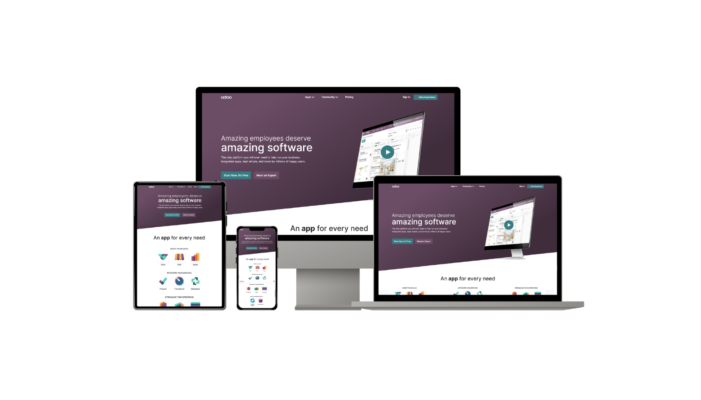
Selecting the right Odoo ERP provider is a critical decision for businesses aiming to enhance their operational efficiency. In today’s competitive landscape, where streamlined processes are synonymous with success, the role of an effective ERP system cannot be overstated. This guide aims to shed light on the essential aspects businesses need to consider when choosing an Odoo ERP provider, ensuring a seamless integration that aligns with their unique needs and goals.
Understanding Your Business Needs:
Before delving into the provider selection process, businesses must have a clear understanding of their unique needs and challenges. Identifying key business processes and pain points is paramount. Whether it’s inventory management, supply chain logistics, or customer relationship management, recognizing these elements will help in assessing how Odoo ERP can address and streamline operations.
For instance, a manufacturing business might prioritize features related to production planning and quality control, while a service-oriented company may lean towards project management and customer service modules. By comprehensively understanding these needs, businesses can then evaluate Odoo ERP providers based on their ability to cater to these specific requirements.
Key Criteria for Evaluation:
Once the business needs are outlined, the next step is evaluating Odoo ERP providers based on specific criteria.
Expertise and Experience:
The provider’s expertise and experience are crucial factors. An established track record demonstrates a level of proficiency and reliability. It’s essential to look for providers with experience in your industry, ensuring they understand the unique challenges you face.
Customization Capabilities:
No two businesses are identical, and a one-size-fits-all approach rarely suffices. Businesses should prioritize providers capable of customizing the Odoo ERP system to suit their individual requirements. This flexibility ensures that the ERP system aligns seamlessly with existing processes and workflows.
Scalability:
Businesses evolve, and so should their ERP systems. Opting for an Odoo ERP provider that offers scalability ensures that the chosen solution can adapt to growth and increased complexities. This forward-looking approach prevents the need for a significant overhaul as the business expands.
Ongoing Support and Maintenance:
Implementation is just the beginning; ongoing support and maintenance are equally crucial. A provider’s commitment to assisting post-implementation and addressing issues promptly can significantly impact the long-term success of the Odoo ERP system within the organization.
In the journey to select an Odoo ERP provider, keeping these key criteria in mind ensures a comprehensive evaluation process that aligns the ERP system with the unique needs and goals of the business. This strategic approach lays the foundation for a successful Odoo ERP implementation that facilitates improved efficiency and sustained growth.
Comparative Analysis of Odoo ERP Providers:
In this section, a detailed comparative analysis of leading Odoo ERP providers will be presented. The focus will be on objectively evaluating their offerings, strengths, and weaknesses. By breaking down the features and functionalities of each provider, businesses can make informed decisions based on their specific needs.
A crucial aspect of the comparative analysis is to showcase the unique selling points of each provider. Whether it’s a user-friendly interface, advanced customization options, or exceptional customer support, these distinctive features will be highlighted. This section aims to empower businesses to make a choice that aligns with their priorities and preferences.
Tips for a Smooth Implementation Process:
Implementing Odoo ERP is a significant undertaking, and this section will provide practical tips to ensure a smooth and successful implementation process. It will cover essential steps such as thorough planning, involving key stakeholders, and setting realistic timelines.
Additionally, the guide will address common challenges that businesses may encounter during the implementation phase and offer practical solutions to overcome them. By emphasizing the importance of a well-structured implementation plan, businesses can navigate the process with confidence and minimize disruptions to their daily operations.
Budget Considerations:
Budget considerations are a crucial aspect of any ERP implementation. This section will delve into the pricing models of Odoo ERP providers, helping businesses understand the cost implications associated with their services. It will discuss factors that may influence pricing, such as the scope of customization, the level of support required, and the size of the organization.
Balancing budget constraints with the need for quality services is a delicate but essential task. The guide will provide insights into finding the right balance and making cost-effective decisions without compromising the effectiveness of the Odoo ERP solution.
Client Testimonials and Reviews:
To add a human touch to the decision-making process, this section will include client testimonials and reviews. Businesses that have previously worked with Odoo ERP providers will share their experiences, highlighting the positive aspects and potential challenges. This firsthand feedback can offer valuable insights and instill confidence in businesses looking to select an Odoo ERP provider.
Questions to Ask Potential Providers:
The guide will conclude with a comprehensive list of questions that businesses should ask potential Odoo ERP providers during the vetting process. These questions will cover various aspects, including expertise, customization capabilities, support services, and scalability. By having a structured set of questions, businesses can engage with providers in a meaningful way and make well-informed decisions based on their responses. This section aims to empower businesses with the tools they need to conduct thorough evaluations and select the Odoo ERP provider that best fits their unique requirements.
